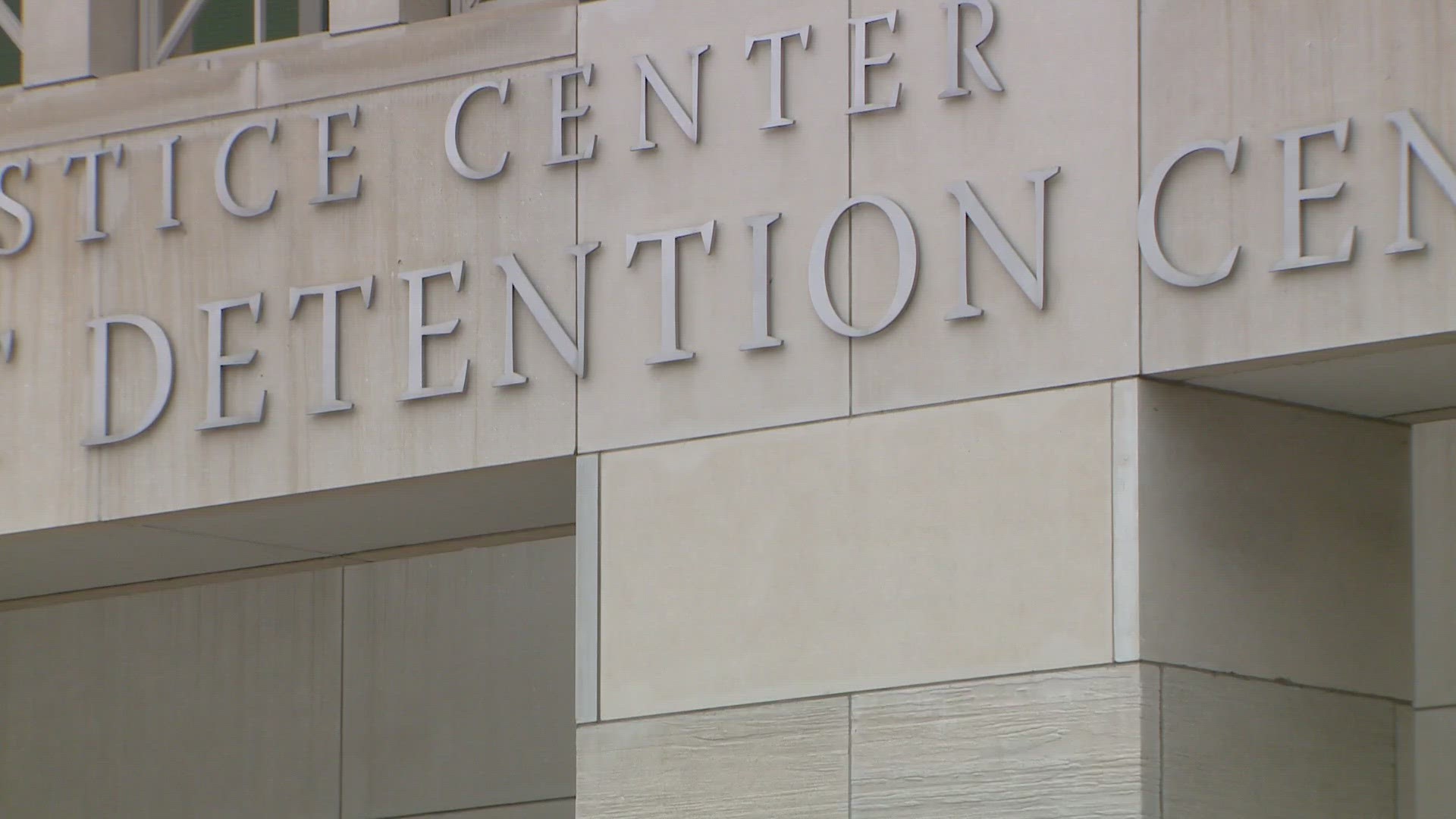DENVER — Denver's Citizen Oversight Board (COB) wants more transparency about the medical care Denver Health provides to inmates at the downtown jail.
The board's concern stems from the death of an inmate last year. Leroy Taylor, 71, died in February 2022 after his family said he was repeatedly denied medical care in the days leading up to his death.
Three investigations were opened, including one by Denver Health which looked at the conduct of their employees. The City and County of Denver contract with Denver Health to provide health care to inmates.
Denver Sheriff Elias Diggins told COB he never received such a report from the hospital, according to the board's 2022 annual report released Wednesday.
"The events surrounding Taylor’s death are particularly concerning to the Board, as they point to a gap in accountability and oversight concerning medical care provided to inmates," said the annual report.
COB is responsible for reviewing the hiring, training and disciplinary process of public safety agencies in the city including the sheriff's department. The oversight board can access records from the sheriff's department to provide recommendations for specific cases and policies.
COB said it doesn't know much information about Taylor's death, and or the hundreds of complaints filed to Denver Health every year.
According to the annual report, Denver Health told the board in January 2022 that it receives, on average, more than 150 inmate complaints each month.
Julia Richman, the chair of COB, said the oversight board doesn't know anything about healthcare complaints filed directly to Denver Health, because COB doesn't have access to them.
"That's a thousand complaints a year and there’s probably work that can be done on a systems level to improve conditions or make changes but we don’t know what those would be," she said.
While recognizing deaths like Taylor's are rare in the jail, Richman said she believes Taylor's case opens the door to a lot of questions.
"What else is going on here in terms of the relationship and the ability of the sheriff’s department to hold them accountable?" she asked.
Richman explained she isn't worried about pervasive problems in the jail. She's concerned the current oversight isn't transparent enough for COB to trust Denver Health is properly handling individual cases of alleged misconduct.
"It's really about making sure the system is functioning so there is accountability and transparency to the public about the outcomes for people in that facility who don’t have the opportunity to share their concerns or voice their concerns publicly because they are incarcerated," said Richman.
A spokesperson for the Denver Sheriff's Department (DSD) said they believe they have the appropriate checks and balances on the contract with Denver Health.
Denver Health said it cannot comment further on Taylor's death due to pending litigation.
According to Richman, "It is not clear to us significant changes have been made or policy or procedure changes."
Sheriff plans to hire a medical liaison
During a meeting with COB earlier this month, Diggins said the department many years ago worked with an attorney who had a medical background to oversee the contract with Denver Health.
DSD wants to return to a similar system by creating a new medical liaison position in the next few months.
"We anticipate the impact of that will be some additional oversight for Denver Health based on that person's background to ensure that the services that we're being provided are those that are expected by our department," said Diggins.
The department has removed jail access to medical staff before. In the past five years, DSD said it denied that access to four people. One of them includes a person involved in Taylor's case.
Diggins said that number is a very small group of folks. Denver Health has a large presence inside the jail because the facility processes 22,000 people every year, according to Diggins.
"They do a fantastic job in leading that service and providing quality care to the folks there in our custody, so it is few and far between when we have to pull that lever and deny access into our jail," said Diggins last week during the meeting with COB.
According to Diggins, leaders of DSD can get information on cases directly from Denver Health. Because COB doesn't have access to complaints filed to the hospital, Richman said the oversight board can't verify the processes for accountability are working.
"As a citizen oversight board, our job is to trust but verify, right? We need to see information for ourselves, discern for ourselves, and be able to communicate with other residents of the city if we feel there are things that are problematic or not," said Richman.
Denver Health's partnership to provide care to those in custody
A spokesperson for the hospital sent the following statement in response to COB's report.
"The Denver Health care team at the Denver County jails strives to provide the best possible care. Any in-custody death is difficult, and we have sincere sympathy for anyone experiencing the loss of a loved one. The circumstances of each death are reviewed, and we are committed to ongoing efforts to improve processes and care.
Similar to other patient populations, Denver County inmates suffer from conditions that are increasingly advanced and complex. Working in coordination with the Sheriff’s Department and drawing on our status as a fully integrated health system, Denver Health offers comprehensive care including mental health services, continuity of care support and care for substance use disorders.
Consistent with our practice and with HIPAA, Denver Health will not comment on the treatment or condition of an individual. Nevertheless, we encourage diligence in ensuring that conclusions drawn or shared are based on information which is factual and accurate.
We recognize the work of the Citizen Oversight Board and the vital role it has in our community. We remain committed to providing comprehensive care services in the jail in partnership with the Denver Sheriff’s Department."
SUGGESTED VIDEOS: Latest from 9NEWS

